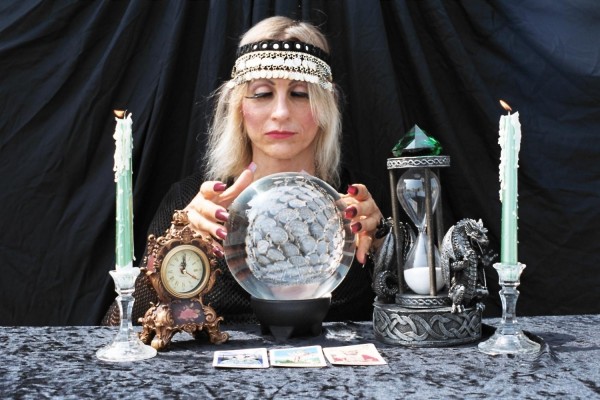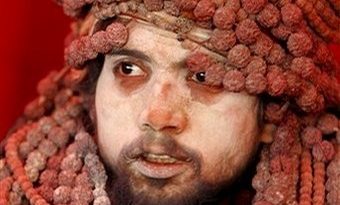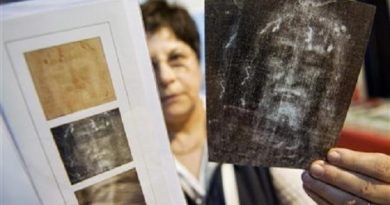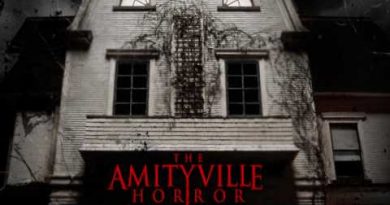Unexplained Mysteries of Scrying
Scrying (also called seeing or peeping) is a magic practice that involves seeing things psychically in a medium, usually for purposes of obtaining spiritual visions and less often for purposes of divination or fortune-telling. The most common media used are reflective, translucent, or luminescent substances such as crystals, stones, glass, mirrors, water, fire, or smoke. Scrying has been used in many cultures as a means of divining the past, present, or future. Depending on the culture and practice, the visions that come when one stares into the media are thought to come from God, spirits, the psychic mind, the devil, or the subconscious.
Although scrying is most commonly done with a crystal ball, it may also be performed using any smooth surface, such as a bowl of liquid, a pond, or a crystal.
Scrying is actively used by many cultures and belief systems and is not limited to one tradition or ideology. As of 2009[update], Ganzfeld experiments, a sensory deprivation experiment inspired by scrying, provides the best known experimental setting for detecting psi abilities in the laboratory. Like other aspects of divination and parapsychology, scrying is not supported by mainstream science as a method of predicting the future or otherwise seeing events that are not physically observable.
Method
The visions that scryers say they see may come from variations in the medium. If the medium is water (hydromancy), then the visions may come from the color, ebb and flow, or ripples produced by pebbles dropped in a pool. If the medium is a crystal ball, the visions may come from the tiny inclusions, web-like faults, or the cloudy glow within the ball under low light (e.g., candlelight).
One method of scrying using a crystal ball involves a self-induced trance. Initially, the medium serves as a focus for the attention, removing unwanted thoughts from the mind in the same way as a mantra. Once this stage is achieved, the scryer begins a free association with the perceived images suggested. The technique of deliberately looking for and declaring these initial images aloud, however trivial or irrelevant they may seem to the conscious mind, is done with the intent of deepening the trance state, in this trance the scryer hears his own disassociated voice affirming what is seen within the concentrated state in a kind of feedback loop. This process culminates in the achievement of a final and desired end stage in which rich visual images and dramatic stories seem to be projected within the medium itself, or directly within the mind’s eye of the scryer, something like an inner movie. This process reputedly allows the scryer to “see” relevant events or images within the chosen medium.
One of the most famous scryers in history, lived in the 16th century and was known as Nostradamus. He used a bowl of water or a “magic mirror” to “see” the future in it, while he was in trance.
People have been Scrying for many years, from the time of the ancients to the modern day. When clear-vision is sought a variety of mediums have been used for their reflective purposes. By using or attuning to an external source or object, one can enhance the stillness and peace needed to start the visions rolling. However to pursue such a practice while in a state of turmoil would induce a very chaotic and random effect, with little real continuity. This train of vision would then need much deciphering and ordering to make sense of any information gained.
All of creation that can be beheld by the eye and all that cannot is born of the element of consciousness. Each individual from a single grain of sand to the gods themselves are but facets of the one whole divine consciousness with an eternal inner-connection, separated only by their own definition of the self.
Religion and mythology
Ancient Persia
The Shahnameh, a historical epic work written in the late 10th century, gives a description of what was called the Cup of Jamshid or Jaam-e Jam, used in pre-Islamic Persia, which was used by wizards and practitioners of the esoteric sciences for observing all of the seven layers of the universe. The cup contained an elixir of immortality.
Latter Day Saint movement
In the late 1820s, Joseph Smith, Jr. founded the Latter Day Saint movement based in part on what was said to be the miraculous information obtained from the reflections of seer stones. Smith had at least three separate stones, including his favorite, a brown stone he found during excavation of a neighbor’s well. He initially used these stones in various treasure-digging quests in the early 1820s, placing the stone in the bottom of his hat and putting his face in the hat to read what he believed were the miraculous reflections from the stone.[1] Smith also said that he had access to a separate set of spectacles composed of seer stones, which he called the Urim and Thummim. He believed that, through these stones, he could translate the plates that are the stated source of the Book of Mormon.
In folklore
Divination rituals such as the one depicted on this early-20th-century Halloween greeting card, where a woman stares into a mirror in a darkened room to catch a glimpse of the face of her future husband while a witch lurks in the shadows, may be one origin of the Bloody Mary legend.
This Halloween greeting card from 1904 satirises divination: the young woman hoping to see her future husband sees the reflection of a nearby portrait instead.
Rituals that involve many of the same acts as scrying in ceremonial magic are also preserved in folklore form. A formerly widespread tradition held that young women gazing into a mirror in a darkened room (often on Hallowe’en) could catch a glimpse of their future husband’s face in the mirroror a skull personifying Death if their fate was to die before they married.
Another form of the tale, involving the same actions of gazing into a mirror in a darkened room, is used as a supernatural dare in the tale of “Bloody Mary”. Here, the motive is usually to test the adolescent gazers’ mettle against a malevolent witch or ghost, in a ritual designed to allow the scryers’ easy escape if the visions summoned prove too frightening.
While, as with any sort of folklore, the details may vary, this particular tale (Bloody Mary) encouraged young women to walk up a flight of stairs backwards, holding a candle and a hand mirror, in a darkened house. As they gazed into the mirror, they were supposed to be able to catch a view of their future husband’s face. There was, however, a chance that they would see the skull-face of the Grim Reaper instead; this meant, of course, that they were destined to die before they married.
Another form of Bloody Mary starts with a legend with a young woman named Mary, living in a small village in England. She was the most beautiful woman in her village and she spent hours looking at herself in the mirror. Eventually, a young witch grew jealous of Mary and cast a curse on her. The curse caused Mary to lose all of her beauty and it disfigured her horribly. One day, Mary cast a spell on her looking glass, and walked through it. She vowed that she would disfigure anyone who tried to summon her back out. This also involves gazing into a mirror in a darkened room and chanting “Bloody Mary” three times while spinning around.
Modern uses
* The Ganzfeld experiment is a sensory deprivation experiment inspired by scrying. According to the small community of parapsychologists, it provides the best known evidence for psi abilities in the laboratory.
* The Dr. John Dee of the Mind research institute, founded by the parapsychologist Raymond Moody, utilizes crystallomancy to allow people to experience an altered state of consciousness with the intention of invoking apparitions of the dead.
* In the TV series Babylon 5, telepath Alfred Bester uses a form of scrying in the episode “The Corps is Mother, the Corps is Father”.
* Contemporary mass media, such as films, often depict scrying using a crystal ball, stereotypically used by an old gypsy woman.
* In Christopher Paolini’s fictional universe of Alagaësia in the Inheritance Cycle, magic users can scry through shiny objects. They can only scry what is happening to specific people in the present, and they are not able to see people or places they have not met or visited in person.
* In J. R. R. Tolkien’s fictional universe of Middle-earth (especially in The Lord of the Rings), the Palantír is a stone that allows a viewer to see what any other Palantír sees, and the Mirror of Galadriel is used as a scrying device to see visions of the past, present, or future.
* In the television show Charmed, the main characters use crystals suspended over maps to scry for people. This is different from other forms of scrying because it just shows location and not a picture, which leads many people to call this practice dowsing.
* “Scry” is a keyword mechanic in the game Magic the Gathering.
* “Scry” was an ability used by the Scholar class in the online game Sock 2 at rpgamer.com that allowed the caster to see the actions another contestant had taken that turn.
* A scryer named Snow is a character in the novel The Blood Confession. She foretells the future in mirrors and draws pictures of her prophetic dreams.
* In the Tortall books by Tamora Pierce, many mages are able to use scrying magic to see what is presently happening outside their immediate surroundings. Alanna the Lioness, notably, carries a sword of which the first several inches of the blade near the hilt are mirrored, so that she can scry at any time.
* A toy known as the Magic 8-Ball consists of a plastic ball filled with an inky solution that contains a buoyant icosahedron; each face of the icosahedron has a different answer printed that appears to the consulter through a small window when held upright.
Source : http://en.wikipedia.org/wiki/Scrying



